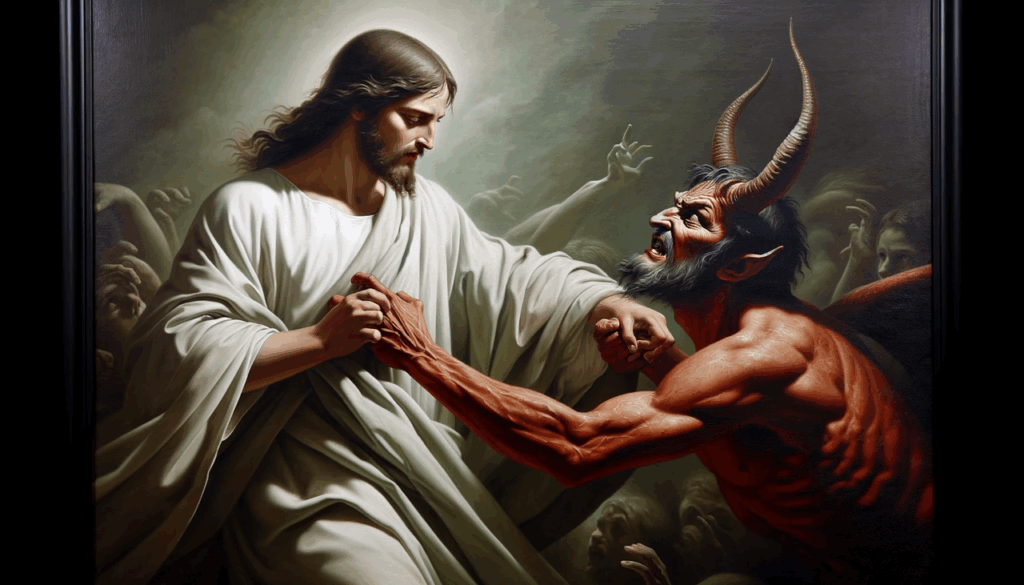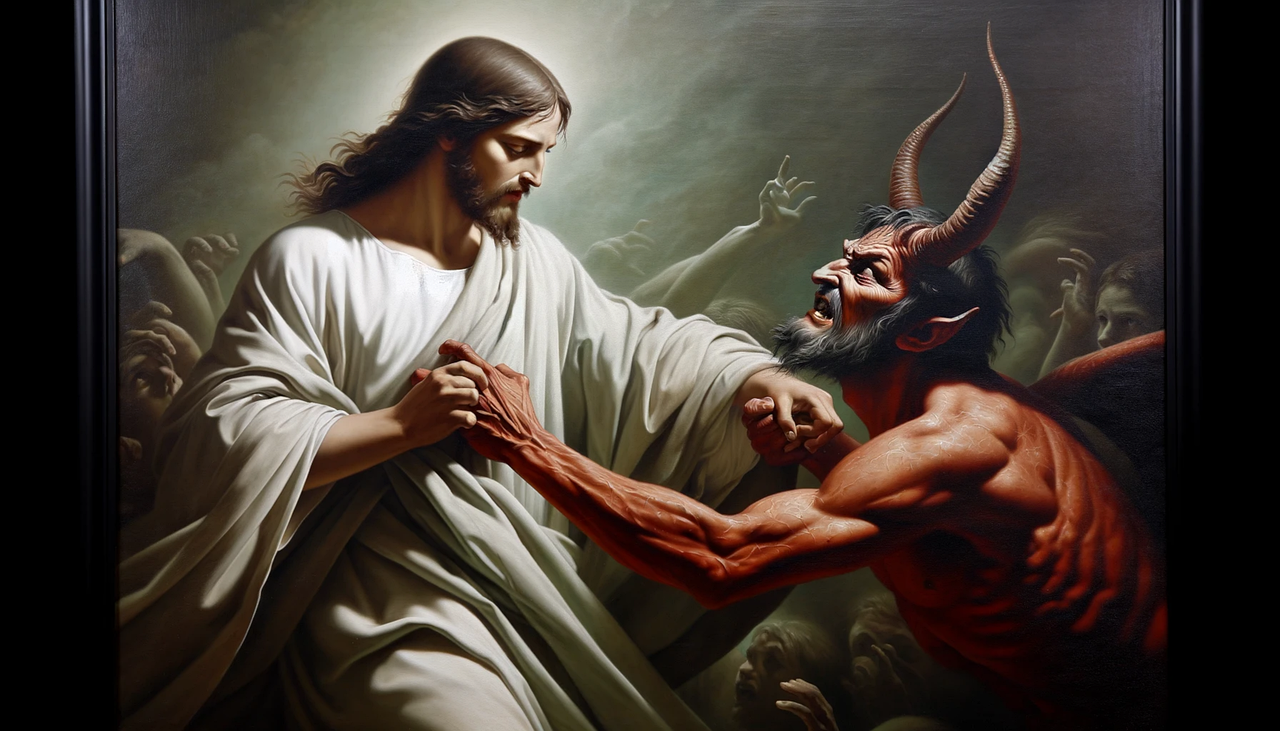
The Devil’s Delight: Quotes That Will Make You Laugh at Perdition
The concept of Hell, the fiery abyss of eternal suffering, has long been a source of fear and dread. However, throughout history, a different perspective has emerged – one that finds humor in the face of damnation. This article delves into “The Devil’s Delight: Quotes That Will Make You Laugh at Perdition,” exploring witty and satirical remarks that poke fun at the devil, the afterlife, and the very idea of eternal punishment. These quotes, often born from moments of dark humor and existential questioning, offer a unique lens through which to view the complexities of faith, morality, and the human condition. We’ll examine the context of these quotes, the individuals who uttered them, and the enduring power of humor in confronting our deepest fears.
A History of Heavenly Humor
The intersection of humor and the concept of Hell isn’t a modern phenomenon. Throughout history, from the ancient Greeks to the Renaissance, writers, philosophers, and satirists have used humor to grapple with the weighty themes of good and evil, sin and redemption. The very notion of a ‘Devil’s Delight’ implies a certain mischievous enjoyment, a gleeful subversion of the solemnity often associated with religious doctrines. The ability to laugh at the face of perdition suggests a profound resilience of the human spirit, a refusal to be entirely consumed by fear.
Early examples can be found in satirical plays and writings that critiqued religious hypocrisy or societal injustices, often using the imagery of Hell to highlight the absurdity of human behavior. The medieval period, with its elaborate depictions of Hell in art and literature, also saw the rise of comedic elements, albeit often subtly woven into the narrative. The Reformation, with its challenge to religious authority, further fueled the use of satire and humor to question the established order, with the devil often serving as a convenient symbol of corruption and wrongdoing. The quotes we explore today are a testament to the ongoing struggle between the sacred and the profane, the serious and the silly, and the enduring human need to find laughter even in the darkest of places. They are a testament to the power of ‘The Devil’s Delight’ to provide a moment of levity.
The Wit of the Wicked: Exploring the Quotes
Let’s journey into some of the most memorable and amusing quotes that offer a glimpse into “The Devil’s Delight.”
Oscar Wilde’s Devilish Wit
Oscar Wilde, the master of wit and social commentary, often turned his sharp tongue towards religious and moral hypocrisy. His quotes, known for their cleverness and cynicism, frequently touch upon themes of sin, temptation, and the afterlife. One can easily imagine Wilde relishing in the idea of ‘The Devil’s Delight.’
Consider this quote: “I can resist everything except temptation.” This statement, while seemingly simple, encapsulates the human struggle between desire and morality. The humor lies in the admission of weakness, the embrace of temptation, and the implied acceptance of potential consequences, even if those consequences involve a trip down to Hell. Wilde’s words, steeped in irony and self-awareness, invite us to reconsider the very nature of good and evil, suggesting that perhaps the pursuit of pleasure and the acceptance of flaws are not so terrible after all. The Devil, as portrayed in Wilde’s work, might be seen as a charming companion, a fellow connoisseur of the finer things in life, rather than a purely malevolent figure. It is a perfect example of “The Devil’s Delight.”
Mark Twain’s Satirical Inferno
Mark Twain, the quintessential American humorist, was no stranger to the themes of sin, religion, and the afterlife. His satirical writings, often laced with social criticism, frequently employed the imagery of Hell to expose hypocrisy and challenge societal norms. Twain’s perspective on “The Devil’s Delight” is one of cynical amusement at the follies of humanity.
A quintessential Twain quote could be, “Heaven goes by favor. If it went by merit, you would stay out and the Devil would get in.” This quote dismantles the notion of a fair afterlife, suggesting that connections and favoritism, rather than genuine goodness, determine one’s fate. The humor stems from the stark contrast between the expected ideals of righteousness and the cynical reality of human behavior. It’s a commentary on the corrupting influence of power and the absurdity of judging people based on superficial standards. Twain’s wit, biting and insightful, allows us to laugh at our own imperfections and the flaws within the systems we create.
Voltaire’s Enlightenment Laugh
Voltaire, the French Enlightenment philosopher and writer, was a staunch advocate of reason, tolerance, and freedom of thought. His satirical writings frequently challenged religious dogma and societal injustices. Voltaire’s approach to “The Devil’s Delight” is one of intellectual defiance and a commitment to questioning established authority.
Voltaire’s satirical works often questioned the very nature of Hell, portraying it not as a place of eternal suffering, but as a construct of religious control. His humor, sharp and intellectual, often involved exposing the contradictions and inconsistencies within religious doctrines. He might say something along the lines of, “God is a comedian playing to an audience too afraid to laugh.” This quote reflects Voltaire’s skepticism towards religious authority and his belief in the power of reason. The humor lies in the audacity of the statement, the implication that the divine is subject to human interpretation, and the invitation to challenge the status quo. Voltaire’s wit encourages us to think critically, to question everything, and to embrace the power of laughter in the face of dogma and fear. His perspectives perfectly encapsulate “The Devil’s Delight.”
The Enduring Power of Dark Humor
The quotes that embody “The Devil’s Delight” tap into a fundamental aspect of the human psyche: the ability to find humor in the face of adversity. Dark humor, in particular, allows us to confront our fears, anxieties, and insecurities in a safe and controlled manner. By laughing at the devil, at Hell, and at the very idea of eternal punishment, we gain a sense of control over our own mortality and the uncertainties of the afterlife.
Dark humor can also serve as a coping mechanism, helping us to process difficult emotions and experiences. In times of crisis or trauma, humor can provide a much-needed release, allowing us to momentarily escape the weight of our burdens. It can also foster a sense of connection with others, as shared laughter can create a bond of empathy and understanding. The ability to laugh at the devil is a sign of strength, resilience, and an unwavering belief in the power of the human spirit.
Beyond the Joke: The Philosophical Implications
The quotes that exemplify “The Devil’s Delight” also raise profound philosophical questions about the nature of good and evil, free will, and the human condition. By poking fun at the traditional notions of Hell and damnation, these quotes invite us to reconsider our own beliefs and values. They challenge us to think critically about the sources of our fears and the ways in which we navigate the complexities of life.
The devil, in these contexts, often serves as a symbol of temptation, transgression, and the darker aspects of human nature. By laughing at the devil, we are, in a sense, laughing at ourselves – at our own flaws, weaknesses, and the choices we make. This self-awareness is crucial for personal growth and understanding. The quotes related to “The Devil’s Delight” remind us that life is not always black and white, that morality is complex, and that humor can be a powerful tool for exploring these complexities.
The Devil’s Delight in Modern Culture
The legacy of “The Devil’s Delight” continues to resonate in modern culture. From stand-up comedy to film and literature, the themes of Hell, damnation, and the devil are frequently used as fodder for humor and satire. Comedians often use the imagery of Hell to explore social commentary, political satire, or personal anxieties. Films and television shows frequently depict the devil as a charming, witty, or even sympathetic character, challenging traditional notions of good and evil.
The enduring popularity of these themes demonstrates the continued relevance of the questions posed by “The Devil’s Delight.” We are still grappling with the concepts of morality, faith, and the afterlife. The ability to laugh at these concepts, to find humor in the face of our deepest fears, remains a testament to the resilience and complexity of the human spirit. The devil, in modern culture, often serves as a mirror, reflecting our own foibles and contradictions.
Conclusion: Embracing the Laughter
“The Devil’s Delight: Quotes That Will Make You Laugh at Perdition” is more than just a collection of witty remarks. It’s a testament to the enduring power of humor in confronting our deepest fears and anxieties. The quotes explored in this article offer a unique perspective on the complexities of faith, morality, and the human condition. They remind us that laughter can be a powerful tool for coping with adversity, challenging authority, and finding meaning in a world often marked by uncertainty.
By embracing the laughter, we embrace the resilience of the human spirit. We acknowledge the absurdity of life, the imperfections of ourselves, and the enduring power of humor to illuminate the darkness. The devil, in all his various manifestations, serves as a reminder that even in the face of perdition, there is always room for a chuckle. The exploration of “The Devil’s Delight” is a journey into the heart of human nature, a celebration of our ability to find joy even in the most challenging of circumstances.
Ultimately, the quotes that exemplify “The Devil’s Delight” encourage us to think critically, to question everything, and to embrace the power of laughter as a means of navigating the complexities of life. It is a celebration of the human spirit’s ability to find joy even in the face of the most daunting of prospects. The ability to laugh at the devil, to find humor in the face of perdition, is a testament to our resilience and our enduring capacity for joy. The essence of “The Devil’s Delight” is found in the ability to laugh in the face of the unknown.
[See also: The Comedy of the Damned]
[See also: Humor in the Afterlife]
[See also: Satire and Religion]


